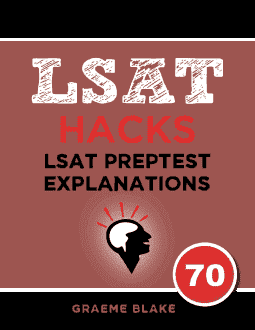DISCUSSION: The first sentence of the third paragraph are key. They say that if people don’t like something, they will call it “voluntary” and oppose public spending to improve public safety for that activity.
Thus people call skydiving voluntary, and call firefighting involuntary, even though both involve a choice (2nd & 3rd sentence of the third paragraph).
___________
- Space travel isn’t mentioned in the passage.
- 2nd & 3rd sentence of the third paragraph indicate that people would call skydiving voluntary in order to avoid spending money to make it safer.
- I was tempted by this, because people support spending money on firefighters. But the first line of the third sentence of paragraph 3 clearly says that firefighting is voluntary. The point of mentioning firefighters was to illustrate that people don’t care about voluntariness in a consistent way.
- CORRECT. The third sentence of the second paragraph says this directly.
- Mountain climbing isn’t mentioned in the passage.


Hi Matt, just wanted to let you know that Mountain Climbing is mentioned in line 4. You said letter E is wrong because the passage says nothing about mountain climbing
The question is asking for activities that “involve risk…not freely assumed”. Mountain climbing is mentioned as a case where the onus is on the individual to guarantee their own safety.
Hi Graeme ,
I’m still having hard time understanding this particular problem.
this question asks:
what activities does laypeople consider to involve risk that is not freely assumed(who assumes?)
– Per the passage, laypeople considers skydiving as risky (or foolish activity) and therefore don’t want govt. to spend.
– they also consider firefighting as risky since they support govt. spending in that case
– they consider traveling via an airplane to be an involuntary activity , but whether they deem it risky or not is not explicitly mentioned in the passage
Does the logic of this problem rest on the nature of an activity as perceived by laypeople to be voluntary and involuntary. And same laypeople branding an involuntary activity as safe while a voluntary activity to be unsafe?(though I couldn’t find the support for this in the passage).
I mean what is the basis of laypeople to brand an activity as “risky”.
Can you please help me with this.
Thanks
SR
The question is asking us which activity do laypeople believe is a.) risky and b.) involving risk that isn’t “freely assumed” i.e. involuntary.
Airline travel is “risky” insofar as when you board a plane, there is a risk that the plane will crash. So, I think common sense shows that the laypeople mentioned in the passage brand this activity as risky–but you’ll find explicit evidence in lines 25-27 and 30-32. The author suggests that laypeople don’t view airline travel as voluntarily or “freely” (to use the language of the question) assuming a risk because passengers don’t have control over whether an airplane might crash (lines 25-27).